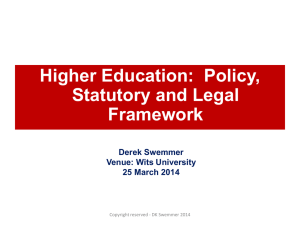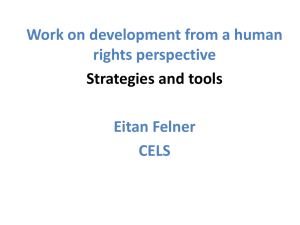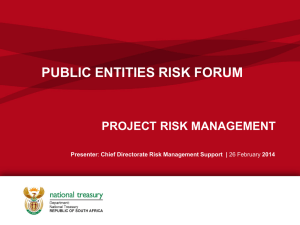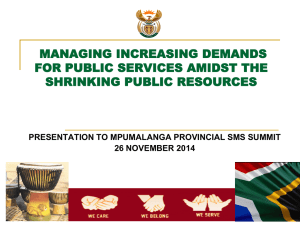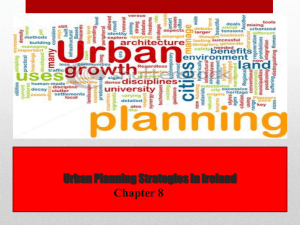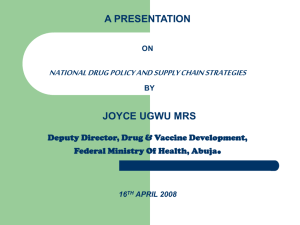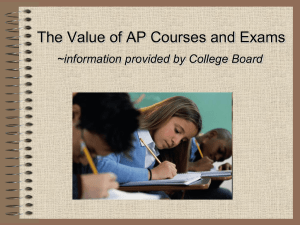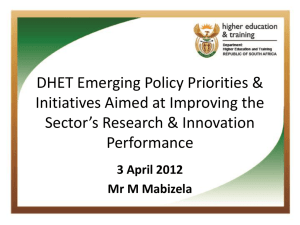Is the Post Schooling Green Paper being deliberately
advertisement
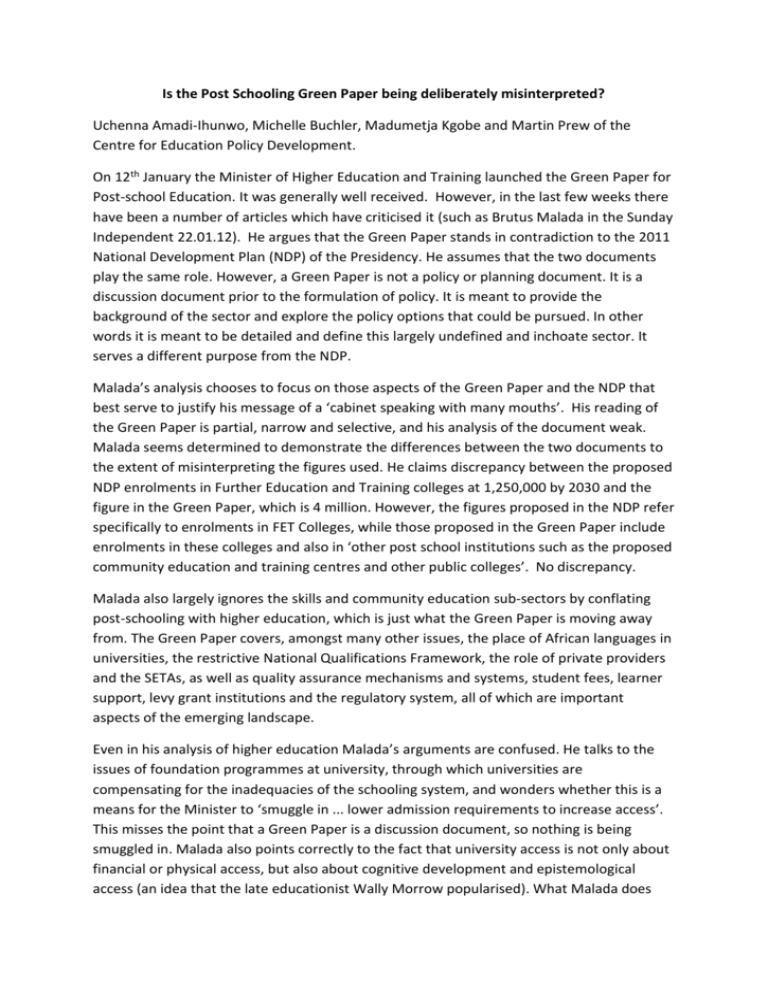
Is the Post Schooling Green Paper being deliberately misinterpreted? Uchenna Amadi-Ihunwo, Michelle Buchler, Madumetja Kgobe and Martin Prew of the Centre for Education Policy Development. On 12th January the Minister of Higher Education and Training launched the Green Paper for Post-school Education. It was generally well received. However, in the last few weeks there have been a number of articles which have criticised it (such as Brutus Malada in the Sunday Independent 22.01.12). He argues that the Green Paper stands in contradiction to the 2011 National Development Plan (NDP) of the Presidency. He assumes that the two documents play the same role. However, a Green Paper is not a policy or planning document. It is a discussion document prior to the formulation of policy. It is meant to provide the background of the sector and explore the policy options that could be pursued. In other words it is meant to be detailed and define this largely undefined and inchoate sector. It serves a different purpose from the NDP. Malada’s analysis chooses to focus on those aspects of the Green Paper and the NDP that best serve to justify his message of a ‘cabinet speaking with many mouths’. His reading of the Green Paper is partial, narrow and selective, and his analysis of the document weak. Malada seems determined to demonstrate the differences between the two documents to the extent of misinterpreting the figures used. He claims discrepancy between the proposed NDP enrolments in Further Education and Training colleges at 1,250,000 by 2030 and the figure in the Green Paper, which is 4 million. However, the figures proposed in the NDP refer specifically to enrolments in FET Colleges, while those proposed in the Green Paper include enrolments in these colleges and also in ‘other post school institutions such as the proposed community education and training centres and other public colleges’. No discrepancy. Malada also largely ignores the skills and community education sub-sectors by conflating post-schooling with higher education, which is just what the Green Paper is moving away from. The Green Paper covers, amongst many other issues, the place of African languages in universities, the restrictive National Qualifications Framework, the role of private providers and the SETAs, as well as quality assurance mechanisms and systems, student fees, learner support, levy grant institutions and the regulatory system, all of which are important aspects of the emerging landscape. Even in his analysis of higher education Malada’s arguments are confused. He talks to the issues of foundation programmes at university, through which universities are compensating for the inadequacies of the schooling system, and wonders whether this is a means for the Minister to ‘smuggle in ... lower admission requirements to increase access’. This misses the point that a Green Paper is a discussion document, so nothing is being smuggled in. Malada also points correctly to the fact that university access is not only about financial or physical access, but also about cognitive development and epistemological access (an idea that the late educationist Wally Morrow popularised). What Malada does not address is that universities have, many of them since the 1980s, used and experimented with different forms of bridging or foundation programmes to deal with issues relating to student cognitive development and epistemological access to and within university study. Recent proposals to extend the length of the undergraduate degree to four years (a strategy mentioned in the NDP) are a partial response to these issues. Arguing that foundation programmes contribute to a blurring of the boundaries between school and university is mischievous – one of the realities we face is that education institutions lower down the ‘hierarchy’ are simply not preparing their learners for the next step in their education. This, Mr Malada, is not blurring the boundaries, but accepting the reality and proposing one way of reducing high dropout and failure rates in universities. Unlike the NDC this paper cannot address schooling, a competence over which this Ministry has no power. Why is all this important? The answer is simple. The post-schooling education and training sector is, as the Green Paper and NDP make clear, a critical part of the education system which provides the interface between education and the world of work. This initiative is too important to get lost in political point scoring. It is critical that South Africans should read the Green Paper and draw their own conclusions, and where possible, make submissions on what they would like to see improved. We are not saying that the Green Paper cannot be criticised. We think, for example, that it fails to adequately examine alternative approaches to post-schooling training, does not adequately explore the concept of community colleges and is too weak on provision for implementing recognition of prior learning and adult basic education. We will be making our submission to the Department.
